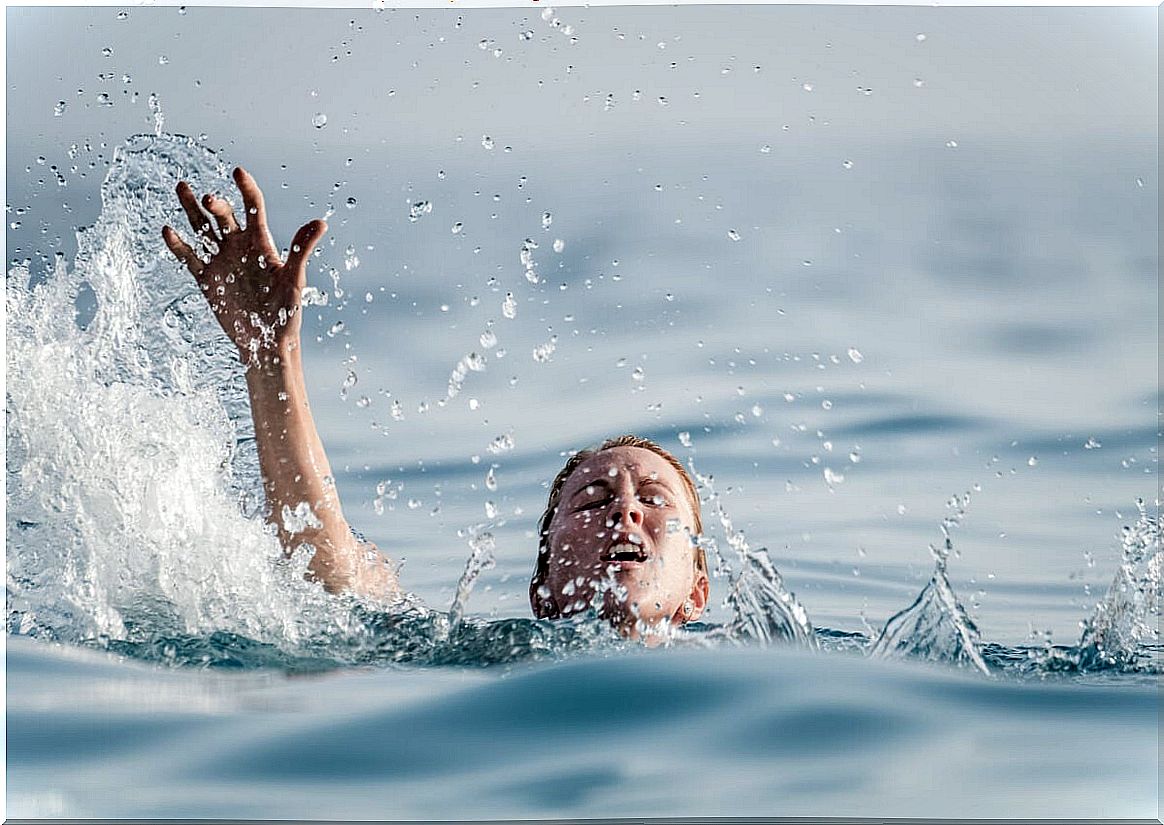Thalassophobia Or Fear Of The Ocean: Causes And How To Overcome It
If a person suffers from thalassophobia, the most important thing to keep in mind is that it is a problem for which there are solutions. The usual thing is that with the appropriate treatment that irrational fear dissipates.

Thalassophobia is an inordinate and irrational fear of the ocean and vast bodies of water. In a more concrete way, it is not concentration that is feared as such, but its breadth, its darkness and what it may contain.
It is obvious that anyone will feel intimidated by the ocean or similar concentrations of water, especially if they rarely have contact with them or do not see land around them. However, in those who suffer from thalassophobia this turns into terror.
A person with this condition does not think that the sea is a body of water against which precautions must be taken. Those who experience this phobia feel that the sea or similar places are the scariest places on the planet. That is why they avoid them and can panic in front of them.
How to identify it?
People who were born and raised far from the sea experience a natural fear when they are in the ocean. However, they are also curious, and as they become more familiar, they allay many of their fears.
In someone with thalassophobia, the fears have to do with the following aspects:
- Fear that some dangerous animal will appear when it is in the ocean.
- Fear that someone will emerge from the water and cause harm.
- Fear of a whirlpool forming under the water and dragging it out to sea.
- Nonspecific fear of dangers that may be hidden under water, such as some toxic substance or something unknown.
Although this phobia does not constitute a disorder as such, according to the Diagnostic and Statistical Manual of Psychiatry (DMS-5) the symptoms coincide with those of the so-called specific phobias. These symptoms include the following:
- Agitation and nervousness, even when thinking of the sea.
- Dizziness, lightheadedness, and nausea when viewing a large, extensive body of water.
- Elevation of heart rate and respiratory rate.
- Difficulty breathing and sweating.
- Anxiety and feeling of depersonalization with a feeling of impending doom.
- Desire to escape, as well as avoidance of any approach to the ocean.

Possible causes of thalassophobia or fear of the ocean
Irrational fear of the ocean and vast concentrations of water can have its origin in three possible causes: previous experiences, education or genetics. Let’s see each one of them:
- Previous Experiences: If a person has had unpleasant or traumatic experiences with water, they may develop thalassophobia. An unexpected event or one that has been interpreted as dangerous can trigger this effect.
- Education: If those close to you have thalassophobia or a phobic perception of the ocean, this may be internalized and adopted as your own. Hearing lurid stories about it also contributes to this, especially in childhood.
- Genetics: people who have a family history of this type of phobia are more likely to develop it at some point in their lives.
How is it diagnosed?
There is no specific test or exam to diagnose this type of phobia. It is established that the problem is present from the evaluation of the symptoms that the person presents. There are informal tests on the internet that can suggest the presence of this disorder.
The formal diagnosis can be given by a doctor, psychologist, or psychiatrist. Usually a basic questionnaire is applied. It is also possible that images of large bodies of water are displayed to observe the reaction.
Thalassophobia is different from hydrophobia, which is the irrational fear of coming into contact with water. It also differs from batophobia, which is an exaggerated fear of deep waters, whether they are extensive or not.
How to treat thalassophobia
Fortunately, thalassophobia can be treated effectively and there are several ways to do it. Cognitive behavioral therapy is one of the best treatment options. This method focuses on transforming behaviors and associated emotions into more adaptive ones.
There is a modality of this cut that usually has very good results and it is exposure therapy. It consists of putting the patient in contact with what he is afraid of for a long enough time so that the anxiety decreases naturally. It takes place gradually.
Another interesting option is systematic desensitization. In this case, the patient is motivated to learn and develop non-anxious behaviors in the face of what causes fear. Both in this case and in the previous one, virtual reality is often used.
When the origin of the phobia is a traumatic experience, EMDR therapy can be very effective. This is a neurological technique in which eye movements, auditory stimulation and tapping or small blows to the knees are used to generate a physiological response that helps to overcome the trauma.

Complications of thalassophobia or fear of the ocean
Thalassophobia, like any other irrational fear, can significantly condition a person’s life. Sometimes other aspects of the personality are affected, which is very inconvenient. The main complications are the following:
- Isolation and loneliness: in some circumstances irrational fear leads to a general sense of incompetence that translates into progressive isolation and avoidance of social situations.
- Panic attacks: These irrational fears can lead to panic attacks, which are sudden and very intense, to the point where they block the ability to act or react.
- Depression: it is common for people who suffer from phobias to also have symptoms of depression.
- Use of psychoactive drugs: some people may turn to alcohol or other psychoactive drugs to regulate or try to dispel the irrational fear they feel.
How to prevent phobias?
The best way to prevent thalassophobia and any other phobia is by preventing fears from taking advantage. If you have had a traumatic experience with water or any other object, it is indicated to treat the situation as soon as possible so that it does not have major consequences.
If the phobia is already installed, there is no need to torment yourself. The right thing to do is to seek professional help when the person wants or is ready to overcome the problem.









